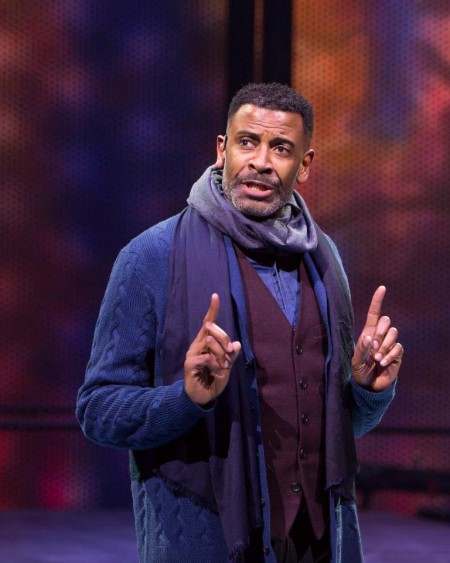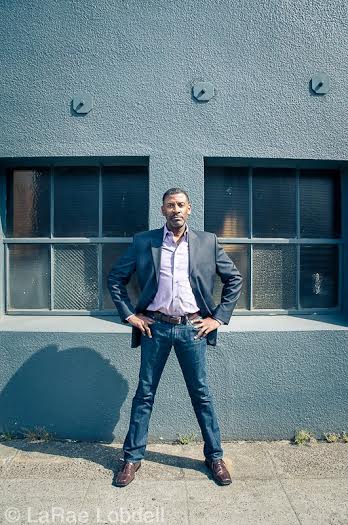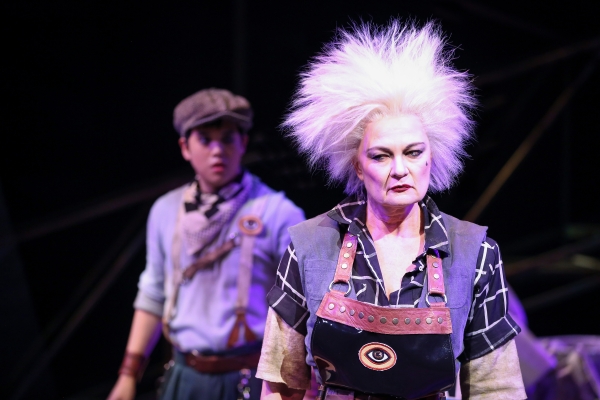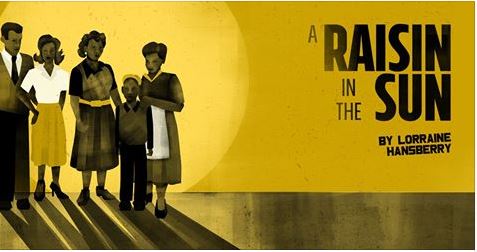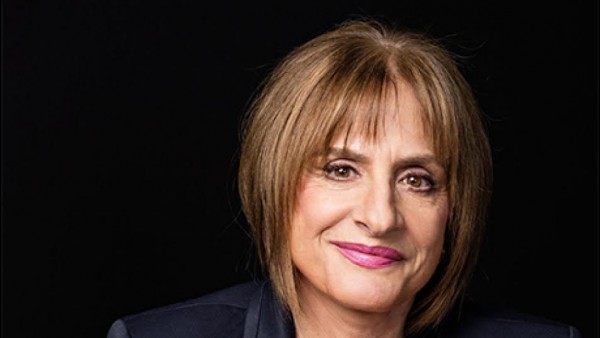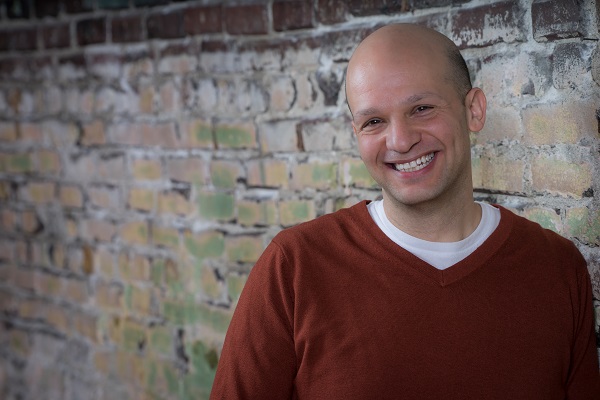Timothy McCuen Piggee is enjoying a 2015 with some well-deserved recognition. In January, he won the Seattle Theater Writer’s (the Seattle critics circle) Gypsy Rose Lee Award for his 2014 performance as the nurse, Belize, in the massive Angels in America at Intiman Theatre. In July, he’ll go to Waukesha, Wisconsin to Ten Chimneys, the estate created by Alfred Lunt and Lynn Fontanne, for a week-long acting intensive with Phylicia Rashad as master teacher.
That honor is gifted to eight to ten professional actors in mid-career and Timothy and Gretchen Krich will indulge themselves this year, after being nominated for the opportunity. Julie Briskman was nominated and participated last year.
Timothy says, “They give you a nice stipend so you don’t worry about money, they fly you first class and put you up in a nice hotel, I’m told. You get time for reflection and study and develop relationships with others around the country. I haven’t had a chance to talk to Julie Briskman about what to expect.
“It was an utter surprise (to be chosen). I think it’s great to be a student. It’s an opportunity to grow and stretch. I can be messy and make mistakes. That’s what I’m looking forward to. And getting feedback from Phylicia Rashad. That’s going to be amazing. It’s intimidating but exciting. I’m coming off a pretty remarkable year and I think this is perfect timing.”
Timothy is currently singing in the revue of Jacques Brel is Alive and Well and Living in Paris, a compilation of angsty, powerful songs from the darling of 1960s singer/songwriters. It’s the production chosen jointly by ACT Theatre and The 5th Avenue Theatre, which now do an annual co-production, generally housed at ACT.
Jacques Brel has gotten great reviews, but it’s a challenging show. People think it’s fun or funny from the breezy title, but Brel’s songs are often dark, political, and sad or heartbroken. Also, there is no dialogue in-between, just one song to the next. But Timothy reports standing ovations.
“The audiences are really great! The other thing that has been great is the number of students that come that didn’t know (the composer) Jacques Brel, but it really catches them. They find themselves buying Jacques Brel recordings!”
Timothy was born and raised in Salt Lake City. “I was raised missionary Baptist. There’s quite an extensive network of African-American churches there. The church I grew up in is the largest in the state. They have to have two services.”
“(In elementary school) I was the only person of color in the room. It wasn’t till 5th grade that there was another African American in class. But we had Catholics and Mormons and 7th day Adventists, and some Jewish people; it was somewhat diverse.
“On the weekends, I went to choir practice on Saturday and church on Sunday. My parents were not from Utah, so we visited family in St. Louis and Mississippi. My father worked for the railroad, so we could take the train (to visit), sometimes.”
Timothy says that, of course, he experienced racism that he says was “brutal and stinging. But it was also a beautiful place to grow up, and there were wonderful people to mitigate that. I’ve encountered blatant racism in Seattle (too).” It also taught him something he applies in acting, all the time.
“It taught me to read someone’s character, so you knew who you were in the room with. What someone else is after, someone’s agenda. It helps me in theater.” Actors often have to break down a role and figure out what the character needs and wants, so this lesson has been useful in Timothy’s chosen career.
Timothy got most interested in theater because his older sister was a “founding member of Salt Lake Acting Company, still in existence. They occasionally used our basement for rehearsals. I’d sit on the steps and listen to what was going on. I attended performances of my sister, and that got me even more interested.”
He was able to gain a four-year scholarship to the University of Utah by auditioning. Timothy says, “I was one of two or three. My best friends were going for musical theater. Then I decided to focus more on acting than singing. I didn’t think my aptitudes were towards musical theater. I didn’t think I was a particularly good singer or dancer and that’s two out of the three things you really need. As a singer I would say (even now), ‘He does alright.’”
Yup. He says that after a career where he has starred at Village Theatre as Don Quixote in Man of LaMancha, and Billy Flynn in Chicago, and being one of five stars in Jacques Brel (among many other musicals).
He tells the amusing story that, while he was studying acting (and denigrating his talent for singing), for extra money, he performed in musicals at the local Equity theater in Salt Lake. He learned, and tells his students at Cornish College, “If you’re going to be an actor, sooner or later, you’re going to sing on stage, so you need to make peace with that.”
After getting a BFA, he felt he wasn’t quite ready to go out and perform. He was accepted to the National Theatre Conservatory at the Denver Center Theatre Company for an MFA. He says, “It was a three year conservatory with the idea of taking eight to ten students and giving them a small stipend while they trained. It’s no longer around as of 2012. Amy Thone went there, arriving as I was leaving.
“I knew that I wanted to teach one day. I wanted to make sure my skills were mature. I was 21! And I loved to learn.
“In the third year, the program took us to New York and Los Angeles to do showcases for casting directors and agents. New York people were interested in me and I moved to New York. Before I got there I was cast in A Christmas Carol in New Jersey. I thought I was launched!
“(But) once I got to New York, they rescinded the offer! Now I was there with no job, but I did what everyone does, made the rounds and took the classes, and was there for a while. The Denver Center called and offered a (contract for a whole) season, so I did that and got my Equity card. I started jobbing myself (out to theaters around the country).
“A woman I knew had located in Seattle and we were talking and she suggested I take a week in Seattle to relax. I wound up at a party and ran into a director I knew at Tacoma Actors Guild. The director was going to do Little Shop of Horrors, and just lost his Plant and would I mind stepping in. I never went back to New York (for work) until I went back to Broadway for Catch Me If I Can.”
Timothy has been teaching now, for years, in Seattle (at Seattle Children’s Theatre, Freehold, and as a Cornish professor), as well as acting and directing. I asked him what he thought his kid self should have known as he was planning for a career in theater and dreaming about it. Now that Timothy has lived the whole gamut of experiences, what would he have told himself?
He says that he shares this with his students all the time: “You really can’t control what other people think. That’s across the board. The other thing is: the most you can ever do is the best you can. At the end of the day, if you believe you’ve done the best you can, what else is there? It’s not about you at that point.”
Timothy talks about being the instrument that makes the art. “It’s about finding constructive things to fill up the well – you’re constantly pouring yourself out for evaluation. I can’t put down the violin (for example), so how do I step aside from what I created? There’s no record of what you’ve done (in theater). I can’t hold it in my hand, it’s gone.
“(As an example,) there’s a single note (I sing) in Jacques Brel that’s sharp occasionally. Some days I hit it and some days, it’s sharp. It’s about getting another chance tomorrow (to hit that note). I get to hold myself accountable for what I’m responsible for. But I have to be a good friend to myself, my own soft place to fall.
“That’s the wisdom of Jacques Brel (in his song Alone). You can be in intimate situations, but you’re still alone, so you’d better craft a good relationship with yourself. You’re born that way and you die that way. (The song is) asking me to think about that, articulating it in a way maybe I’ve never thought of.”

The company of “Jacques Brel is Alive and Well & Living in Paris”, a co-production presented at ACT – A Contemporary Theatre.
Photo Credit: Mark Kitaoka
He reports that all of the cast, “are in agreement that going in, nothing could prepare us for how challenging and difficult it would be. I knew it would be hard music, but it’s relentless. Thousands of note and thousands of lyrics and add the movement component. I will never ever get all of it right.
“We still feel that way. We get satisfied with 90% of it right. Everything happens in the moment in this show and you can’t look back. For two hours you are on that ride. Transitions are very quick. Non-stop singing. You pray to God that your voice does everything you need and want it to do.”
So, is there something on his theater bucket list? Some experience he still wants to have? He says, “My mantra is that I want to do good work with good people. I think that in terms of where we’re headed, theater will become much more event oriented, so you don’t have to sit in a velvet jewel box to see the stories. I think that’s where we’re headed. Theater will be more interactive. Not to say that what we have now is going away, but I’m thinking of clearing space for something new. What we have now may not prove to be sustainable.
“As long as my memory serves me and body serves me, I want to have as many adventures as are offered to me. Whatever shape or form. You really can’t predict anything in this business. I don’t want to predict, since it’s not likely to come true. I just want to be in a state of readiness so I can hop on that train and see where it goes. I’m alright with that.”
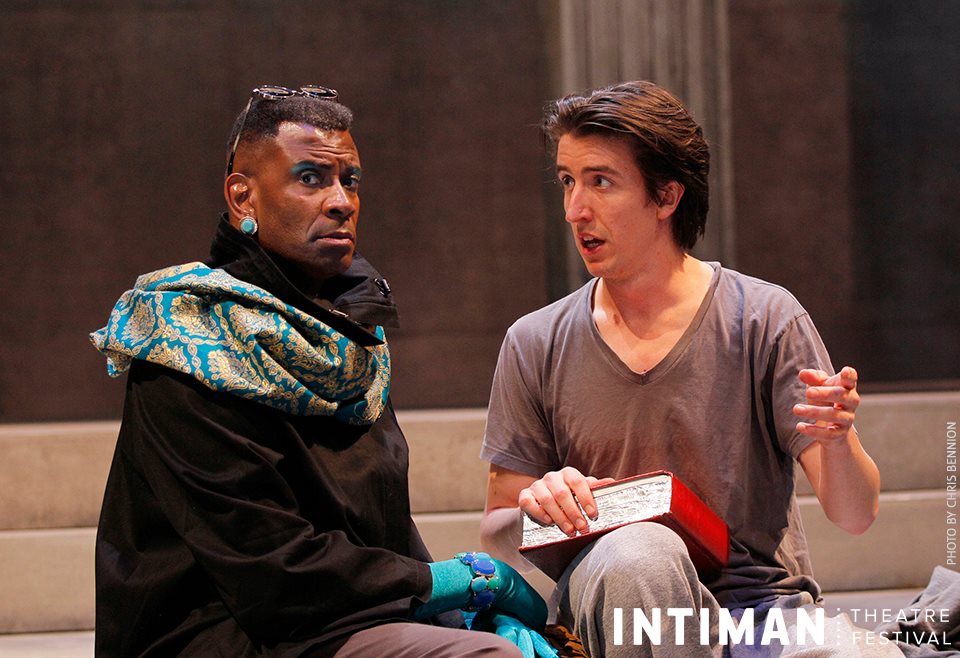
Gypsy Award winner Timothy McCuen Piggee (Belize) and Adam Standley (Prior Walter) in INTIMAN Theatre’s “Angels in America, Part 2: Perestroika” which was staged in the summer of 2014. Photo: Chris Bennion
Check out Timothy in “Jacques Brel” now through May 17th at ACT. Tickets HERE!


